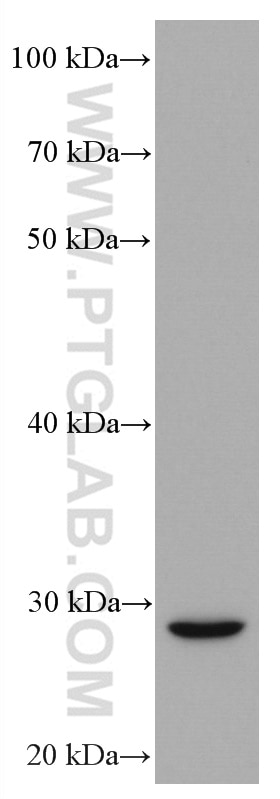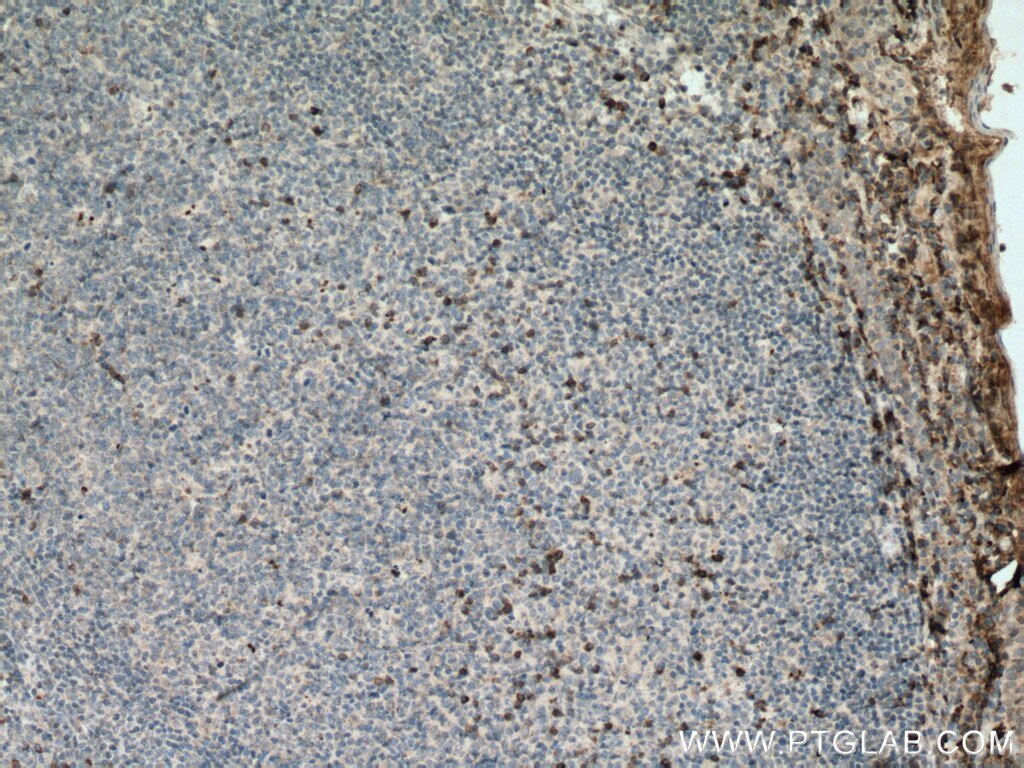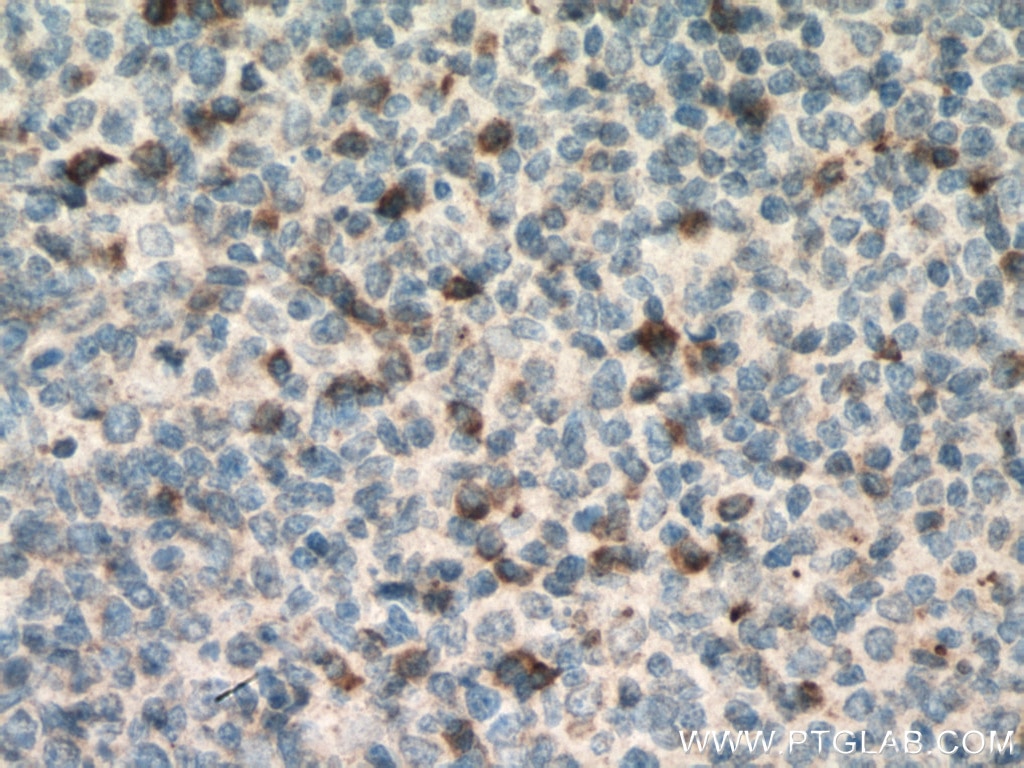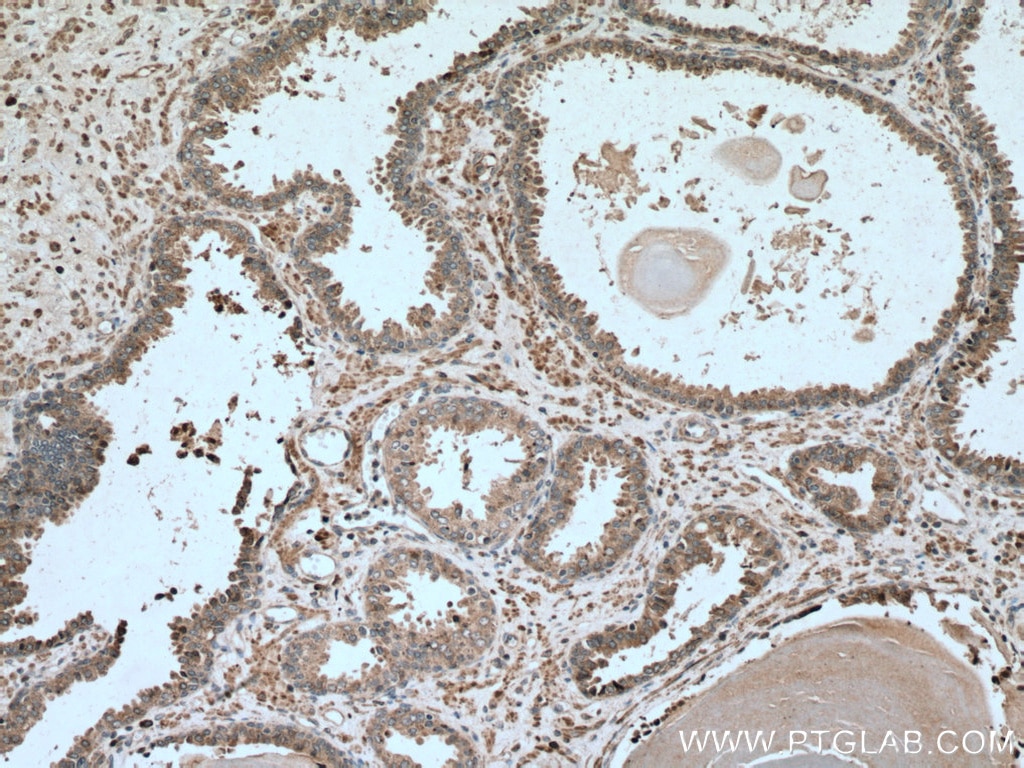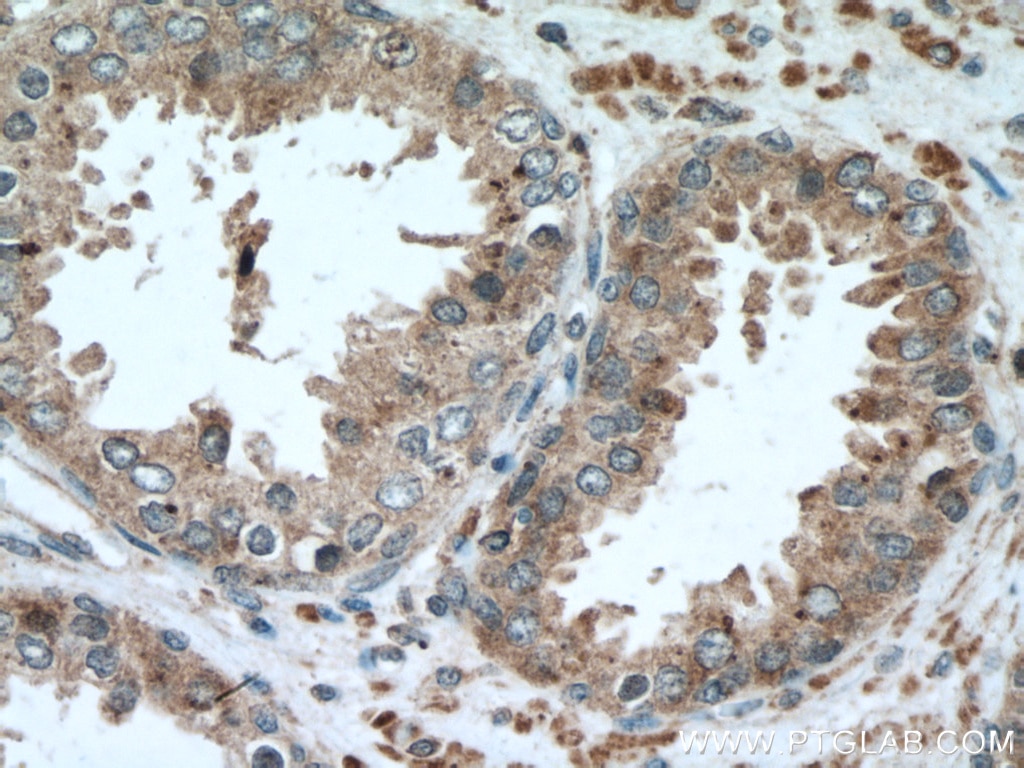Anticorps Monoclonal anti-TRAIL/CD253
TRAIL/CD253 Monoclonal Antibody for WB, IHC, ELISA
Hôte / Isotype
Mouse / IgG1
Réactivité testée
Humain
Applications
WB, IHC, IF, ELISA
Conjugaison
Non conjugué
CloneNo.
1B9B4
N° de cat : 66756-1-Ig
Synonymes
Galerie de données de validation
Applications testées
| Résultats positifs en WB | tissu de lait humain |
| Résultats positifs en IHC | tissu d'amygdalite humain, tissu de cancer de la prostate humain il est suggéré de démasquer l'antigène avec un tampon de TE buffer pH 9.0; (*) À défaut, 'le démasquage de l'antigène peut être 'effectué avec un tampon citrate pH 6,0. |
Dilution recommandée
| Application | Dilution |
|---|---|
| Western Blot (WB) | WB : 1:500-1:2000 |
| Immunohistochimie (IHC) | IHC : 1:50-1:500 |
| It is recommended that this reagent should be titrated in each testing system to obtain optimal results. | |
| Sample-dependent, check data in validation data gallery | |
Applications publiées
| WB | See 1 publications below |
| IF | See 1 publications below |
Informations sur le produit
66756-1-Ig cible TRAIL/CD253 dans les applications de WB, IHC, IF, ELISA et montre une réactivité avec des échantillons Humain
| Réactivité | Humain |
| Réactivité citée | Humain |
| Hôte / Isotype | Mouse / IgG1 |
| Clonalité | Monoclonal |
| Type | Anticorps |
| Immunogène | TRAIL/CD253 Protéine recombinante Ag25746 |
| Nom complet | tumor necrosis factor (ligand) superfamily, member 10 |
| Masse moléculaire calculée | 281 aa, 33 kDa |
| Poids moléculaire observé | 28-30 kDa |
| Numéro d’acquisition GenBank | BC032722 |
| Symbole du gène | TRAIL |
| Identification du gène (NCBI) | 8743 |
| Conjugaison | Non conjugué |
| Forme | Liquide |
| Méthode de purification | Purification par protéine G |
| Tampon de stockage | PBS with 0.02% sodium azide and 50% glycerol |
| Conditions de stockage | Stocker à -20°C. Stable pendant un an après l'expédition. L'aliquotage n'est pas nécessaire pour le stockage à -20oC Les 20ul contiennent 0,1% de BSA. |
Informations générales
TNFSF10/TRAIL (tumor necrosis factor superfamily member 10) is a typical death ligand expressed on natural killer cells and cytotoxic T lymphocytes. This protein preferentially induces apoptosis in transformed and tumor cells, but does not appear to kill normal cells although it is expressed at a significant level in most normal tissues. TNFSF10 induces apoptotic cell death in cancer by binding to its functional death receptors, death receptor (DR) 4 (TNFRSF10A/TRAIL-R1) and DR5 (TNFRSF10B/TRAIL-R2) to activate the extrinsic apoptosis pathway. TRAIL also activates c-Jun N-terminal kinase (MAPK8/JNK) and the transcription factor nuclear factor-κB (NFκB). The binding of this protein to its receptors has been shown to trigger the activation of MAPK8/JNK, caspase 8, and caspase 3.
Protocole
| Product Specific Protocols | |
|---|---|
| WB protocol for TRAIL/CD253 antibody 66756-1-Ig | Download protocol |
| IHC protocol for TRAIL/CD253 antibody 66756-1-Ig | Download protocol |
| Standard Protocols | |
|---|---|
| Click here to view our Standard Protocols |
Publications
| Species | Application | Title |
|---|---|---|
Adv Healthc Mater TRAIL-Armed ER Nanosomes Induce Drastically Enhanced Apoptosis in Resistant Tumor in Combination with the Antagonist of IAPs (AZD5582). | ||
Cancers (Basel) Extracellular Vesicle Delivery of TRAIL Eradicates Resistant Tumor Growth in Combination with CDK Inhibition by Dinaciclib. | ||
Front Bioeng Biotechnol The inhibitory effect of human umbilical cord mesenchymal stem cells expressing anti-HAAH scFv-sTRAIL fusion protein on glioma |
